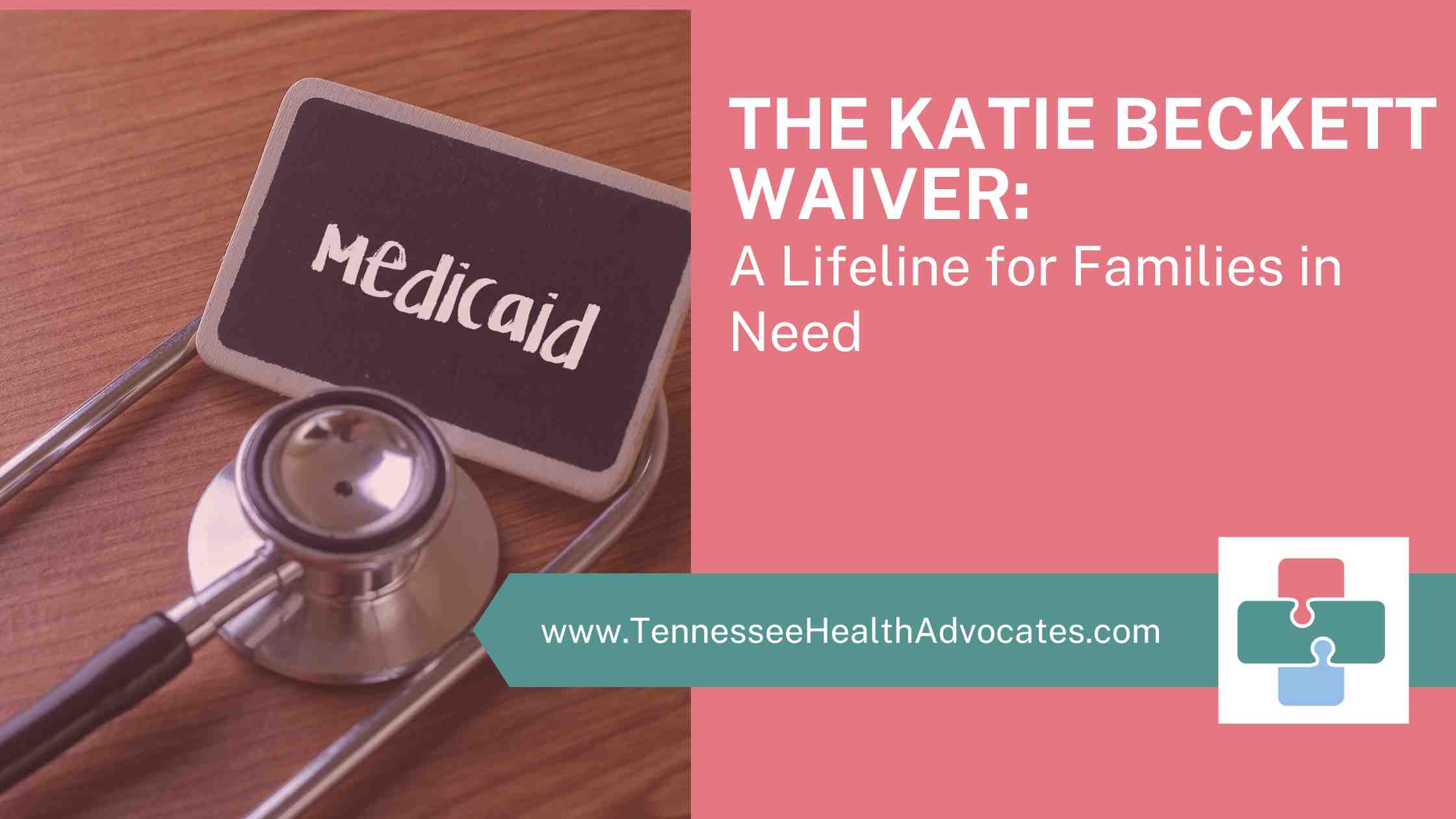Navigating healthcare can often feel like uncharted territory, especially when faced with managing medical expenses for a loved one with complex needs. In today’s post, we dive into the Katie Beckett Waiver, shedding light on its significance, eligibility criteria, and availability, empowering families with vital information to access essential care for their children.
Unraveling the Katie Beckett Waiver: What Is It?
To understand the nature of the Katie Beckett waiver, let’s talk about its origins and purpose. Named after Katie Beckett, a young girl who faced profound medical challenges early in life, this waiver provides hope for families grappling with similar circumstances. Katie was diagnosed with encephalitis as an infant. She encountered severe respiratory distress, rendering her dependent on life support.
Her prolonged hospitalization led to the exhaustion of private insurance benefits, thrusting Katie’s family into financial uncertainty. At this point Katie became eligible for Medicaid coverage. Unfortuantely, Medicaid guidlines required consideration of her parents income for eligibility. As a result, families with children like Katie were forced to place them into facilities in order to access their Medicaid benefits. The Katie Beckett Waiver changed that eligibility requirement for children under 18 years of age, thus heralding a lifeline for countless families facing similar predicaments. The Katie Beckett waiver revolutionized Medicaid rules, allowing children with significant medical needs to receive care at home while retaining Medicaid coverage.
Who Qualifies for the Katie Beckett Waiver?
Understanding eligibility criteria is critical for families seeking assistance through the waiver program. To qualify, children must meet specific requirements:
- Age Criteria: Children must be under the age of 18, ensuring support during formative years.
- Institutional Level of Care: This criterion assesses the intensity of a child’s medical needs, typically aligning with care provided in pediatric nursing homes or hospitals.
- Safe Home Care Provision: Children must demonstrate the ability to receive necessary medical care outside institutional settings, ensuring their well-being in a home environment.
- Cost Consideration: The cost of home care should not surpass that of institutional care, ensuring equitable access to essential services.
Each state may have variations in defining institutional level of care, be sure to research your state’s criteria to determine eligibility.
Where Is the Katie Beckett Waiver Available?
As families desperately seek support, understanding the availability of the Katie Beckett waiver becomes essential. In 49 states, programs similar to the Katie Beckett waiver offer essential assistance. Sometimes initiatives are administered under different names such as Children’s Choice waiver. While Wyoming currently lacks a specific Katie Beckett option, alternative avenues exist within the Medicaid programs to cater to children with disabilities and their families.
Empowering Families Through Information and Support
The Katie Beckett waiver provides families with clarity and empowerment. Allowing them to navigate the children’s healthcare with confidence. As a result of the Katie Beckett Waiver, untold numbers of children and their families are now able to access the care they need without leaving the loving environment of their home.
As advocates for clarity and empowerment in healthcare, we stand committed to clarifying this complex process, ensuring everyone receives the benefits they deserve.
If you’ve found these tips valuable, check out Health Insurance: The Ultimate Guide to Your Benefits. All of my posts are crafted to empower you on your advocacy journey. Explore and absorb the wisdom shared, and let it fuel your aspirations. In fact, if you want to be the first to get new information and support, join me in The Circle where we meet LIVE on Zoom every week!
Stay tuned for our next blog post, where we’ll tackle “From Bedside to Business Marketing – Transitioning into Independent Patient Advocacy.” I”m going to share everything I wish I had known when I first started my practice. Get ready to learn more in our next post.
Additional Resources:
- Explore Kids Waivers: Visit kidswaivers.org to access valuable resources and information on waivers for children with special healthcare needs.
- Medicaid Resources: Check out Medicaid.gov for comprehensive information on Medicaid waivers and CHIP programs, including details on the Katie Beckett Waiver.
- The Catalyst Center: Dive deeper into financing strategies for children and youth with special health care needs by visiting The Catalyst Center, a national resource center dedicated to health insurance and financing for CYSHCN.
- State-Specific Information: Access state-specific Medicaid waiver information and resources at Medicaid Waivers – State Information, ensuring you have the most up-to-date information relevant to your location.



[…] tuned for our next blog post, where we’ll delve into “The Katie Beckett Waiver.” This is a program every advocate needs to be aware of to ensure qualified clients are able to get […]